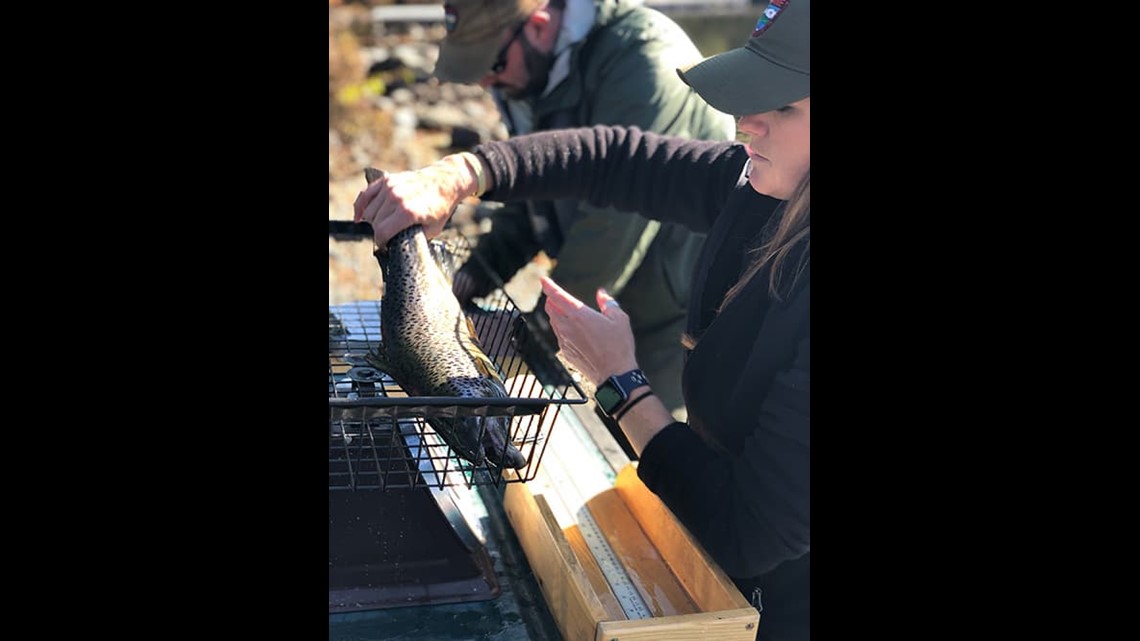AUGUSTA, Maine — 'North Woods Law' was a sneak peek into the lives of Maine's game wardens, and it was a huge success; drawing in many television viewers who had never gone hunting or fishing, and giving them a view they had never seen before. It was the Maine Department of Inland Fisheries and Wildlife's first real chance to show a broad audience what a few members of its staff do to preserve the land and its resources.
The show moved out of Maine four years ago, but now there's an even broader look into what our state biologists and wardens do every day: a podcast. Season one of the podcast is called, "Fish and Game Changers," and delves into the world of women in the field.
Katie Yates is voice behind the podcast. Yates moved to Maine in 2018 to join the MDIFW, and as the host of the show she's learning something new along with the listeners. "Before I was going out with Liz, our fisheries biologist, as she's trap netting at Rangeley Lake and Quimby Pond; or I'm going out with a game warden in her passenger seat of her cruiser as we are driving around." The rules of the podcast have changed with the regulations of COVID-19, "I had plans for the next season that will have to be adapted because its definitely changed how we do business, but it's nice because with the recorder I can stand pretty far away and still capture every sound I need to."


Yates focuses on both the sounds, and the stories of her colleagues - hoping to bring each listener into the field along with them. "There are 1.3-million people in this state and every year we sell about 500,000 licenses and registrations to people who are trying to enjoy the outdoors in Maine. Mainers are passionate about the outdoors and that has been more obvious during this strange time, I've seen more people fishing out at trail heads, our turkey numbers are up this year; so I think people are interested in the work that our staff does and why they do it."
"I really want to convey that our staff members are dedicated, passionate, hard-working people who spend a lot of time learning about the species they are managing; and they do it because they love the work and they want people to enjoy the recreation opportunities that are in our state."

